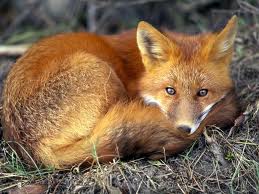One of the facts about carnivores that make them so interesting is that they often can and do thrive close to humans, and may flourish in suburban/urban areas, even while subsisting on a mostly natural diet of small to medium-sized prey like mice and rabbits. Carnivores require food, water, and cover and have learned to adapt to our environments. For some, this is welcome news. Others may perceive carnivores as a threat. But it is easy to coexist with carnivores like eastern coyotes and foxes. The key is to make your property less attractive to animals to avoid having any problems. Here are some easy tips to follow:
- To discourage coyote, fox or other wild carnivore visits, do not feed or try and tame wild animals. People who think they are being kind by feeding wildlife make it more likely that the animal will become habituated to food and as they try to protect the food source, they may become bold or aggressive. A habituated wild animal, especially a carnivore, often ends up dead. Keep wildlife safe and wild.
- Secure your garbage. Foxes or coyotes may raid open trash materials and compost piles. Secure your garbage in tough plastic containers with tight fitting lids and keep in secure buildings when possible. Take out trash when the morning pick-up is scheduled, not the previous night. Keep compost in secure, vented containers.
- Keep bird feeder areas clean. Use feeders designed to keep seed off the ground, as the seed attracts many small mammals foxes and coyotes prey upon. Remove feeders if foxes or coyotes are regularly seen around your yard.
- Do not feed your pets outside, feed pets indoors. Outdoor feeding attracts many wild animals to your door!
- Close off crawl spaces under porches and sheds. Foxes and coyotes may use such areas for resting and raising young.
- Try to educate your neighbors about the dangers of feeding coyotes, foxes, bobcats and wildlife. When neighbors feed carnivores or other wildlife regularly they will also be visiting other nearby homes.
- Coyotes, foxes and bobcats are naturally fearful of humans. If you do not want them to visit your yard, make noise (bang pots and pans) or stomp your feet or wave your arms.
If you enjoy their visits, watch quietly from a window or a respectful distance.
- Make noise when you are outside especially if coyotes are often in your area. Coyotes will often change their course of direction when they hear people. Bring a whistle or horn to scare them away from you, if you feel threatened.
- Despite the near ubiquitous presence of carnivores in MA, attacks on people are exceedingly rare.
